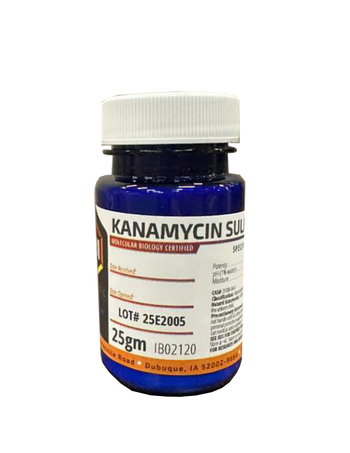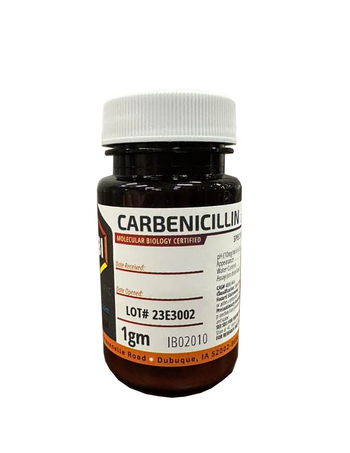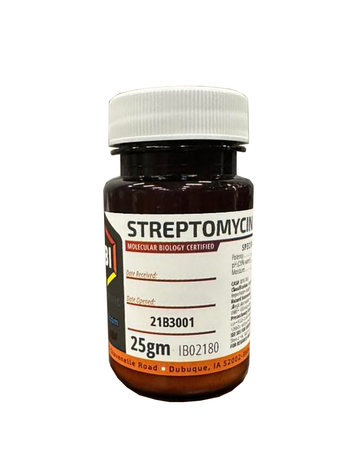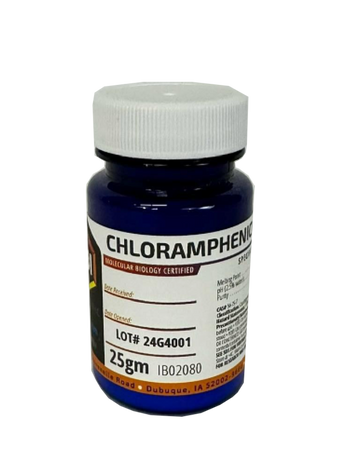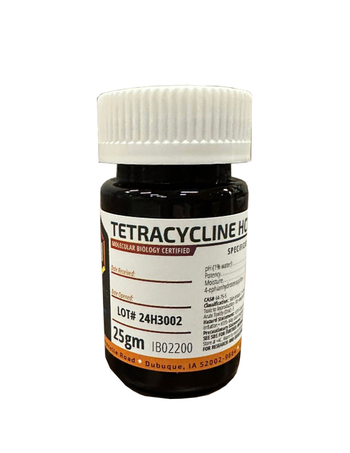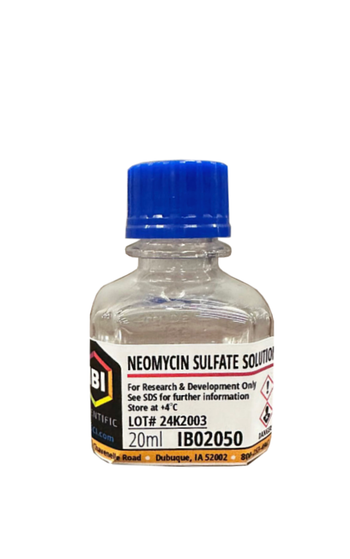
Ampicillin Sodium salt is an antibiotic in the broad-spectrum penicillin group. Ampicillin differs from penicillin only by the presence of an amino group, which facilitates penetration through the outer membrane of some gram-negative bacteria. Ampicillin acts by interfering directly with the turnover of the bacterial cell wall and indirectly by triggering the release of enzymes that further alter the cell wall.
- Item Description
- Physical Specifications
- Certificate of Analysis
- SDS
- Technical Information
- Citations
Additional Item Description:
Ampicillin Sodium salt is an antibiotic in the broad-spectrum penicillin group. Ampicillin differs from penicillin only by the presence of an amino group, which facilitates penetration through the outer membrane of some gram-negative bacteria.
Ampicillin acts by interfering directly with the turnover of the bacterial cell wall and indirectly by triggering the release of enzymes that further alter the cell wall. Ampicillin is an antibiotic used to inhibit cell wall biosynthesis by interrupting peptidogly can cross-linking. Ampicillin can be used in cell culture applications.
Ampicillin Sodium Salt is in powder form which makes it an economical choice that can be used in a wide range of gram-positive and gram-negative infections.
Key Details:
- For use in cell culture media to inhibit gram-positive and gram-negative bacteria
- This product cannot be shipped to a private residence
Physical Attributes:
CAS#:69-52-3
Formula Weight:371.39
Molecular Formula:C16H18N3NaO4S
Potency:845 – 988mcg/mg
PH (1%,water):9.0 ± 1.0
Moisture: Max.
2.0%
Molecular Biology Specifications:
Antibiotic Inhibition/Sensitivity Assay: Pass
Certificate of Analysis Links:
SDS Links:
What temperature do you store this antibiotic?
Powder form: +4°C (Refrigerated) Solution form: -20°C (Frozen)What is the shipping temperature?
Shipped @ room temperature: 18°-26° C (2- day shipping) with ice packs and is stored cold.How long is ampicillin still good at room temp?
It should be useable at room temperature for 60 hours or 2.5 days.What is the country of origin?
This antibiotic is from India.
Typical stock solution
The ampicillin powder is used to make a stock solution at 50mg/ml in water. The working concentration for stringent plasmids is 20 µg/ml and 60 µg/ml for relaxed plasmids.
Stock solutions of ampicillin dissolved in water should be sterilized by filtration through a 0.22 micron filter.
Capsaicinoids are produced by plants in the Capsicum genus and are the main reason for the pungency of chili pepper fruits. They are strong agonists of TRPV1 (the transient receptor potential cation channel subfamily V member 1) and used as active ingredients in pharmaceuticals for the treatment of pain. The use of bioengineered microorganisms in a fermentation process may be an efficient route for their preparation, as well as for the discovery of (bio-)synthetic capsaicinoids with improved or novel bioactivities.

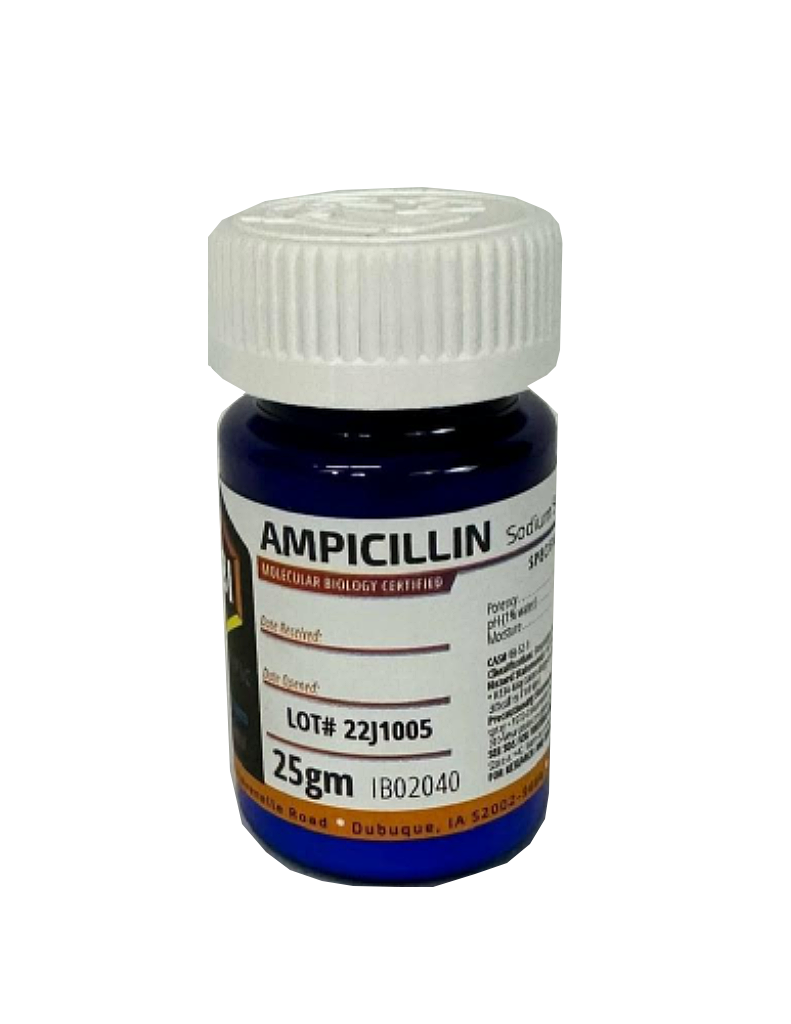
 Read Article
Read Article